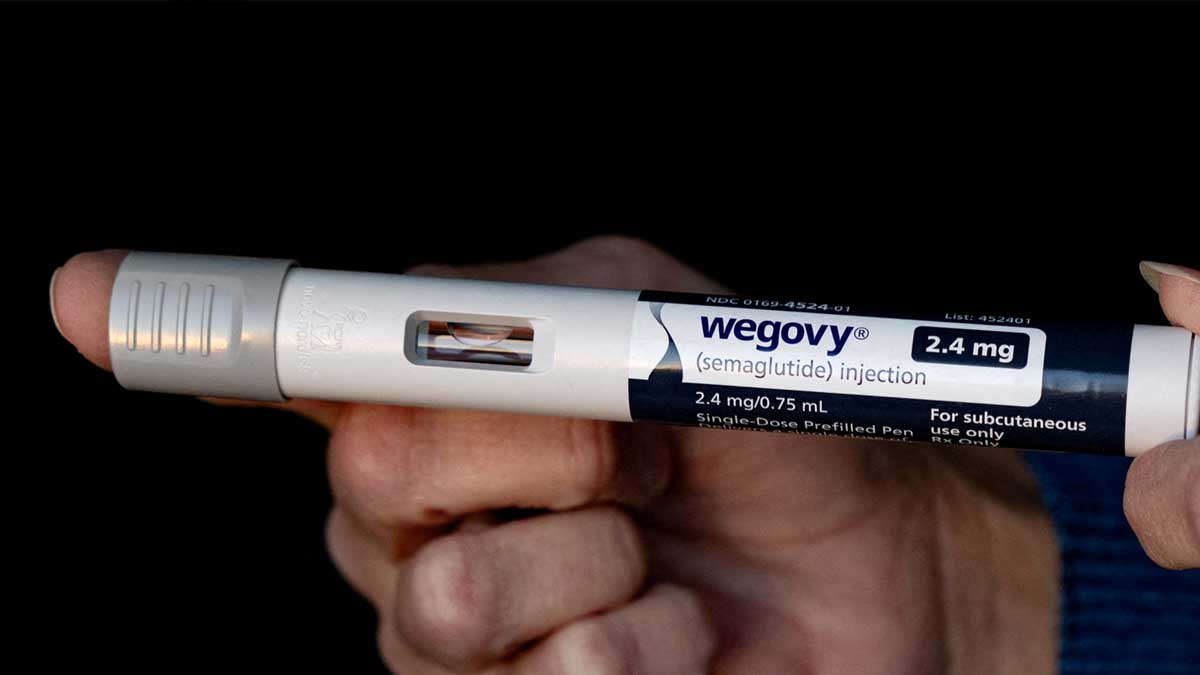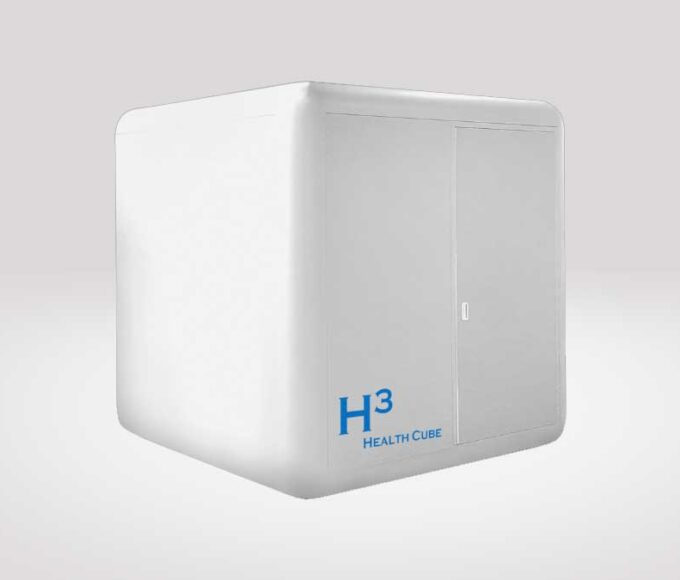- Home
- Billionaires
- Investing Newsletters
- 193CC 1000
- Article Layout 2
- Article Layout 3
- Article Layout 4
- Article Layout 5
- Article Layout 6
- Article Layout 7
- Article Layout 8
- Article Layout 9
- Article Layout 10
- Article Layout 11
- Article Layout 12
- Article Layout 13
- Article Layout 14
- Article Sidebar
- Post Format
- pages
- Archive Layouts
- Post Gallery
- Post Video Background
- Post Review
- Sponsored Post
- Leadership
- Business
- Money
- Small Business
- Innovation
- Shop
Recent Posts
Wegovy Approved in China, Novo Nordisk Prioritizes Patient Supply

Ozempic manufacturer Novo Nordisk announced on Tuesday that its popular weight loss drug Wegovy has been approved for sale in China. This approval represents a significant milestone for the Danish pharmaceutical company, as it opens the doors to a vast and potentially lucrative market. However, despite this victory, Novo Nordisk has stated it will only launch Wegovy in China once it can guarantee a stable supply for existing patients. This cautious approach comes in response to ongoing shortages that have plagued the U.S. market and other regions, emphasizing the company’s commitment to ensuring consistent access for current users before expanding availability.
Wegovy has been approved for “long-term weight management” in obese and overweight individuals in China who have at least one weight-related health condition. This approval aligns with global efforts to combat obesity, a growing health crisis. However, Novo Nordisk has not provided specifics regarding the launch date in China, potential pricing, or the volume of supplies that will be allocated to this new market. Camilla Louise Lyngsby, Novo’s Global Media Relations Lead, declined to comment on these details but assured that an official announcement would be made once the company can ensure continuous care for existing users. This cautious strategy aims to prevent disruptions in treatment for current patients amidst the high demand.
In the U.S., the combination of high demand and plans for global expansion has led to significant restrictions on the availability of smaller Wegovy doses, which are essential for new patients beginning their treatment. As of now, the FDA lists the three lowest doses of Wegovy as having “limited availability” due to increased demand. This situation raises concerns about whether the rollout of Wegovy in China might exacerbate these shortages, potentially impacting the availability of the drug in the U.S. and other regions. The company is focused on prioritizing higher doses for those already on the medication, but it remains to be seen how this balance will be managed.
Following the announcement of Wegovy’s approval in China, Novo Nordisk’s shares rose by 1.6% in Copenhagen on Tuesday. The success of its GLP-1 treatments, Wegovy and Ozempic, has significantly boosted the company’s market capitalization, which has nearly doubled from around $300 billion at the start of 2023 to approximately $630 billion. This financial growth underscores the market’s confidence in Novo Nordisk’s innovative treatments and their potential for continued success in the global market.
On Monday, Novo Nordisk announced a substantial $4.1 billion investment to develop a new manufacturing facility in Clayton, North Carolina. This new plant, expected to be completed between 2027 and 2029, will produce injectable medicines like Ozempic and Wegovy, creating approximately 1,000 new jobs. This facility will join three other manufacturing plants in the area, contributing to Novo Nordisk’s broader $6.8 billion plan to expand production capabilities. This investment is part of the company’s efforts to ramp up output of its GLP-1 drug semaglutide, which is marketed as Ozempic for diabetes and Wegovy for obesity and cardiovascular problems.
Despite these expansion efforts, Novo Nordisk, along with its GLP-1 rival Eli Lilly, has struggled to meet the booming demand for these revolutionary drugs. Semaglutide and similar treatments have shown promise in treating various conditions beyond weight loss, including sleep apnea, heart problems, kidney disease, and Parkinson’s. However, the shortage of smaller starter doses has led to warnings about the rise of counterfeit medicines, posing potential risks to patients. The companies have acknowledged that these shortages are unlikely to be resolved in the near future, though they promise to ensure continued care for those already on the medication.
Rajesh Kumar, head of HSBC’s European Life Sciences and Healthcare Equity research, highlighted that while Novo Nordisk is aggressively increasing its production capacity, the main bottleneck remains supply. He believes that despite the rising demand, the company will manage to increase supply effectively, prioritizing the diabetes indication over the obesity management ramp-up. Kumar also noted that this prioritization is unlikely to change, given the company’s historical approach to managing supply constraints.
A potential challenge for Novo Nordisk is the looming patent cliff in China, which could see generic versions of semaglutide entering the market around 2026, much earlier than in many other regions. This could impact Novo Nordisk’s market share and profitability in China, adding pressure to ramp up production and maintain a competitive edge.
Recent Posts
Categories
- 193cc Digital Assets2
- 5G1
- Aerospace & Defense46
- AI37
- Arts3
- Banking & Insurance11
- Big Data3
- Billionaires426
- Boats & Planes1
- Business328
- Careers13
- Cars & Bikes76
- CEO Network1
- CFO Network17
- CHRO Network1
- CIO Network1
- Cloud10
- CMO Network18
- Commercial Real Estate7
- Consultant1
- Consumer Tech180
- CxO1
- Cybersecurity68
- Dining1
- Diversity, Equity & Inclusion4
- Education7
- Energy8
- Enterprise Tech29
- Events11
- Fintech1
- Food & Drink2
- Franchises1
- Freelance1
- Future Of Work2
- Games141
- GIG1
- Healthcare78
- Hollywood & Entertainment186
- Houses1
- Innovation42
- Investing2
- Investing Newsletters4
- Leadership65
- Lifestyle11
- Manufacturing1
- Markets20
- Media193
- Mobile phone1
- Money13
- Personal Finance2
- Policy567
- Real Estate1
- Research6
- Retail1
- Retirement1
- Small Business1
- SportsMoney33
- Style & Beauty1
- Success Income1
- Taxes2
- Travel10
- Uncategorized8
- Vices1
- Watches & Jewelry2
- world's billionaires395
Related Articles
What Healthcare Can Learn from Nvidia’s Success
The tech industry is undergoing a seismic transformation, with two of its...
By 193cc Agency CouncilDecember 16, 2024Salmonella Triggers Recalls of Costco Eggs and Cucumbers
The recent salmonella outbreak has prompted the recall of two major food...
By 193cc Agency CouncilNovember 30, 2024Bird Flu Found in Raw Milk in California, Recall Issued
California health authorities have confirmed the presence of the bird flu virus...
By 193cc Agency CouncilNovember 25, 2024UniDoc Health Launches Mobile ‘Health Cube’ for Remote Care
UniDoc Health, a Vancouver-based company, is revolutionizing healthcare accessibility with the launch...
By 193cc Agency CouncilNovember 23, 2024















Leave a comment